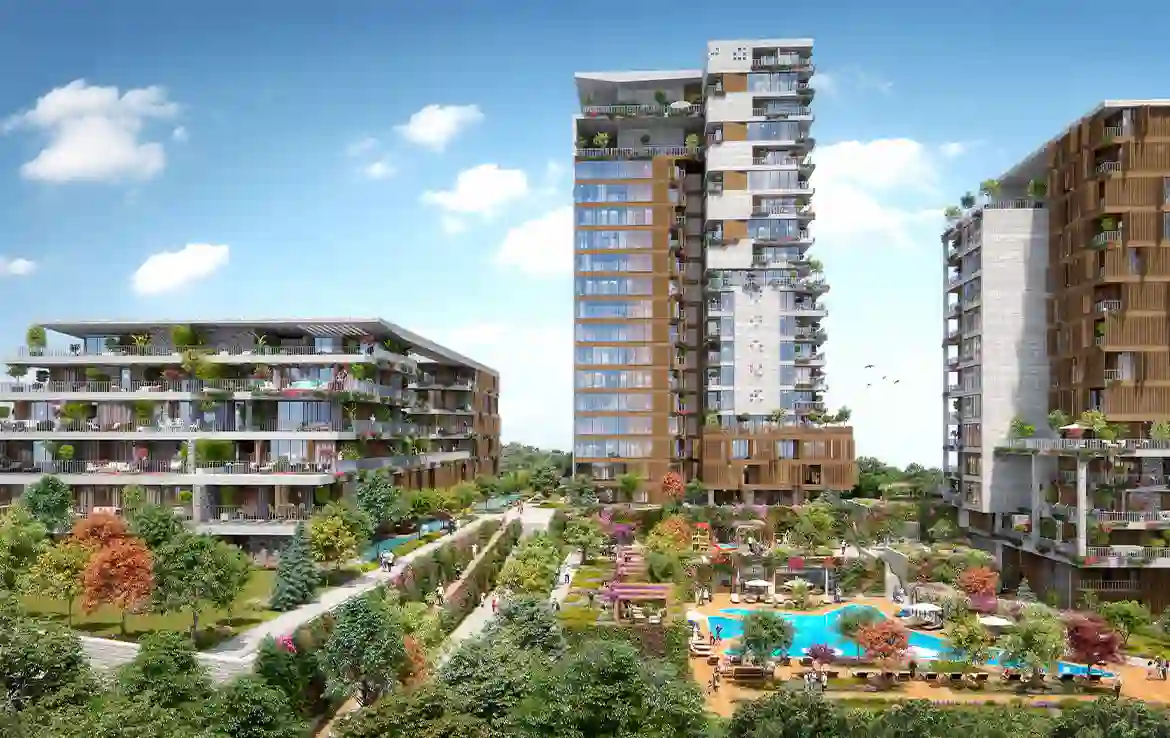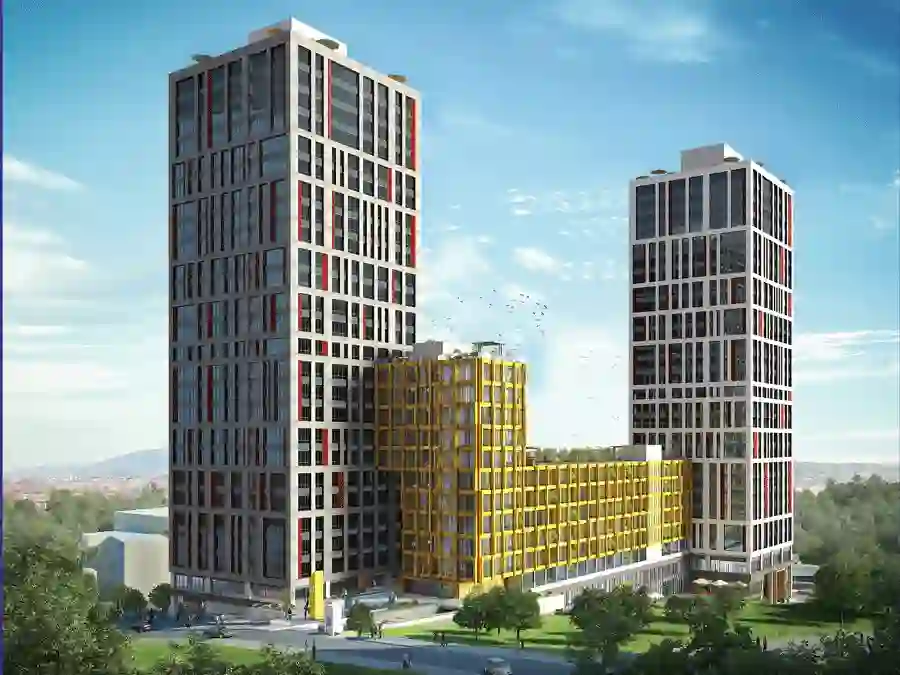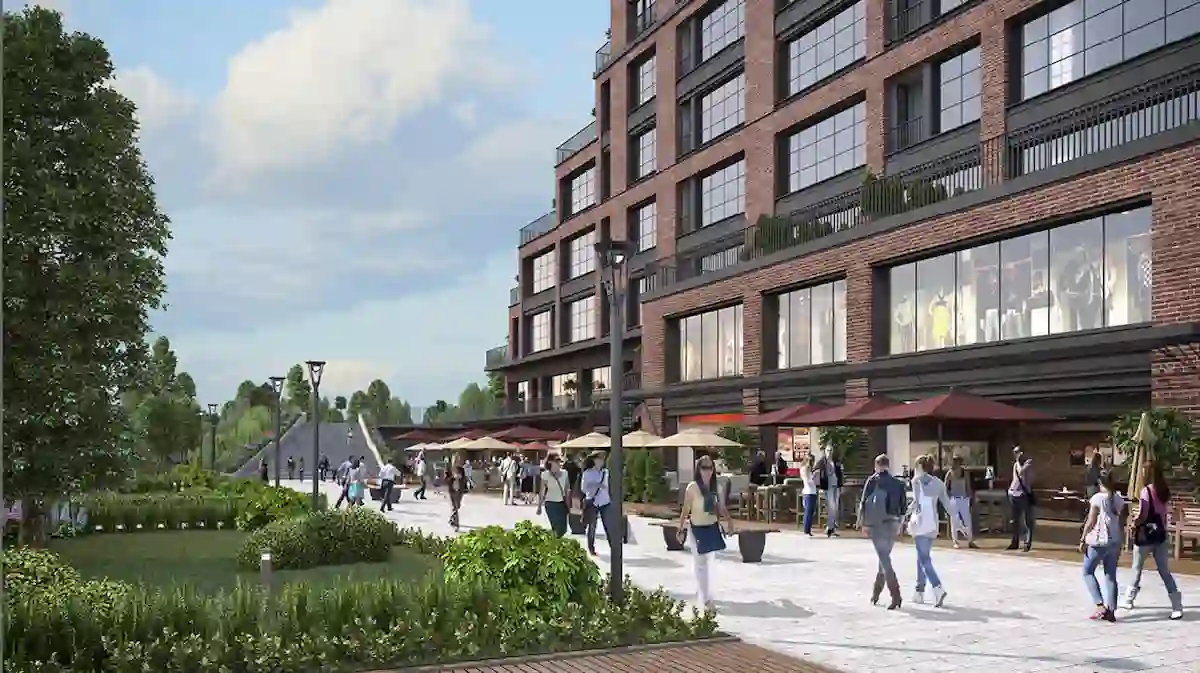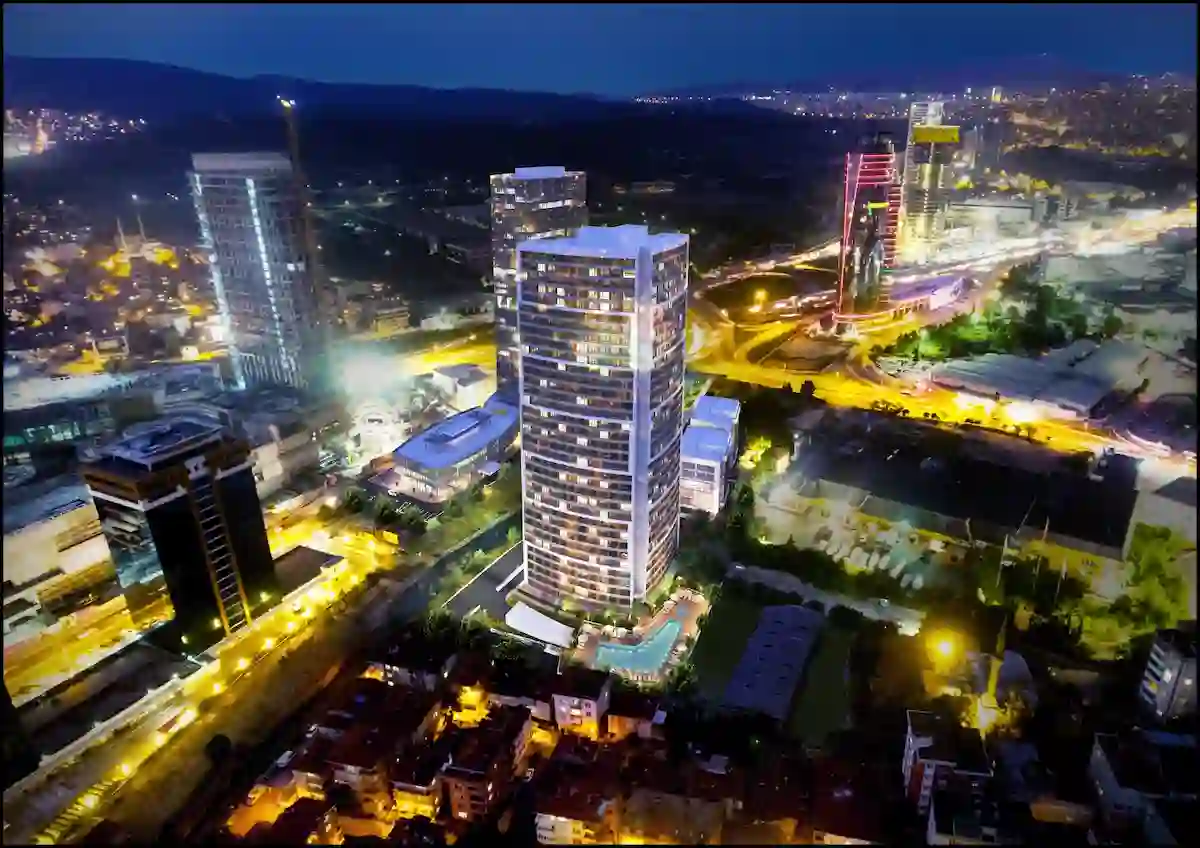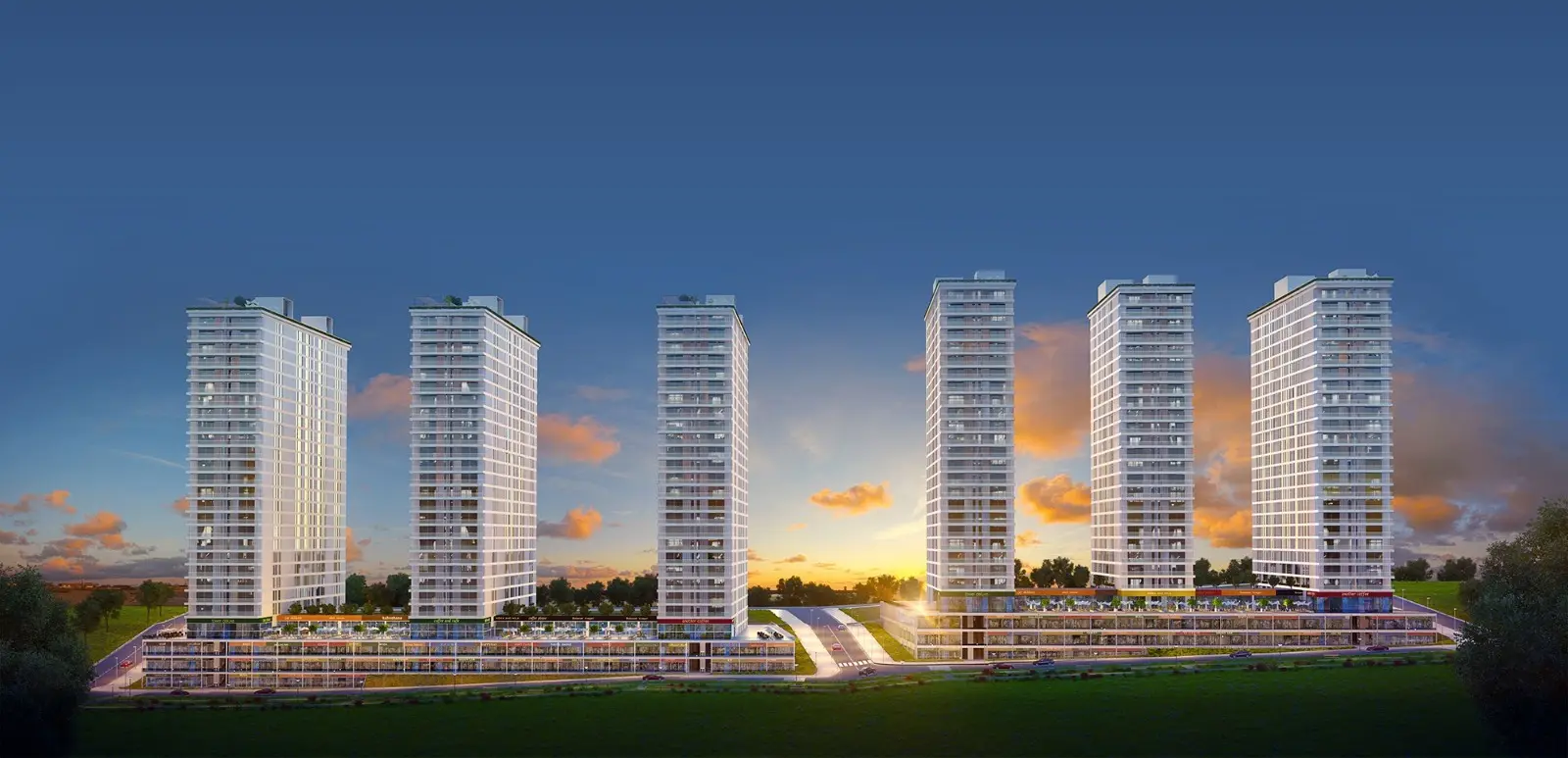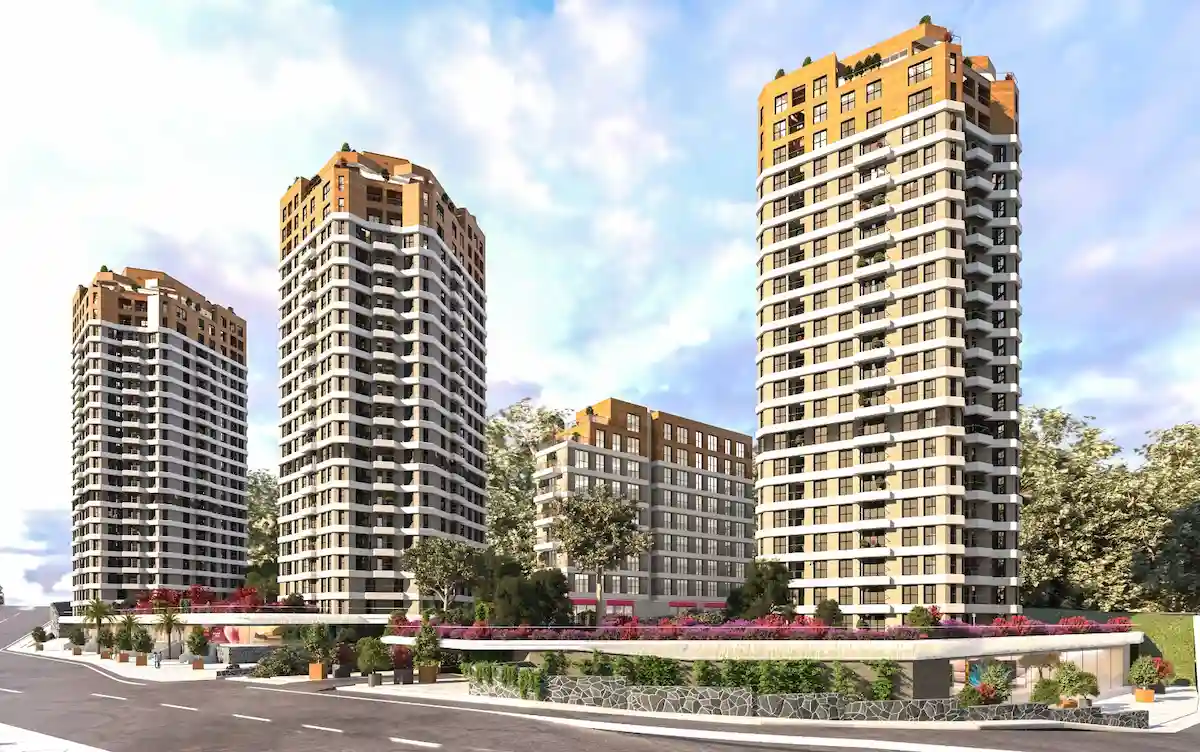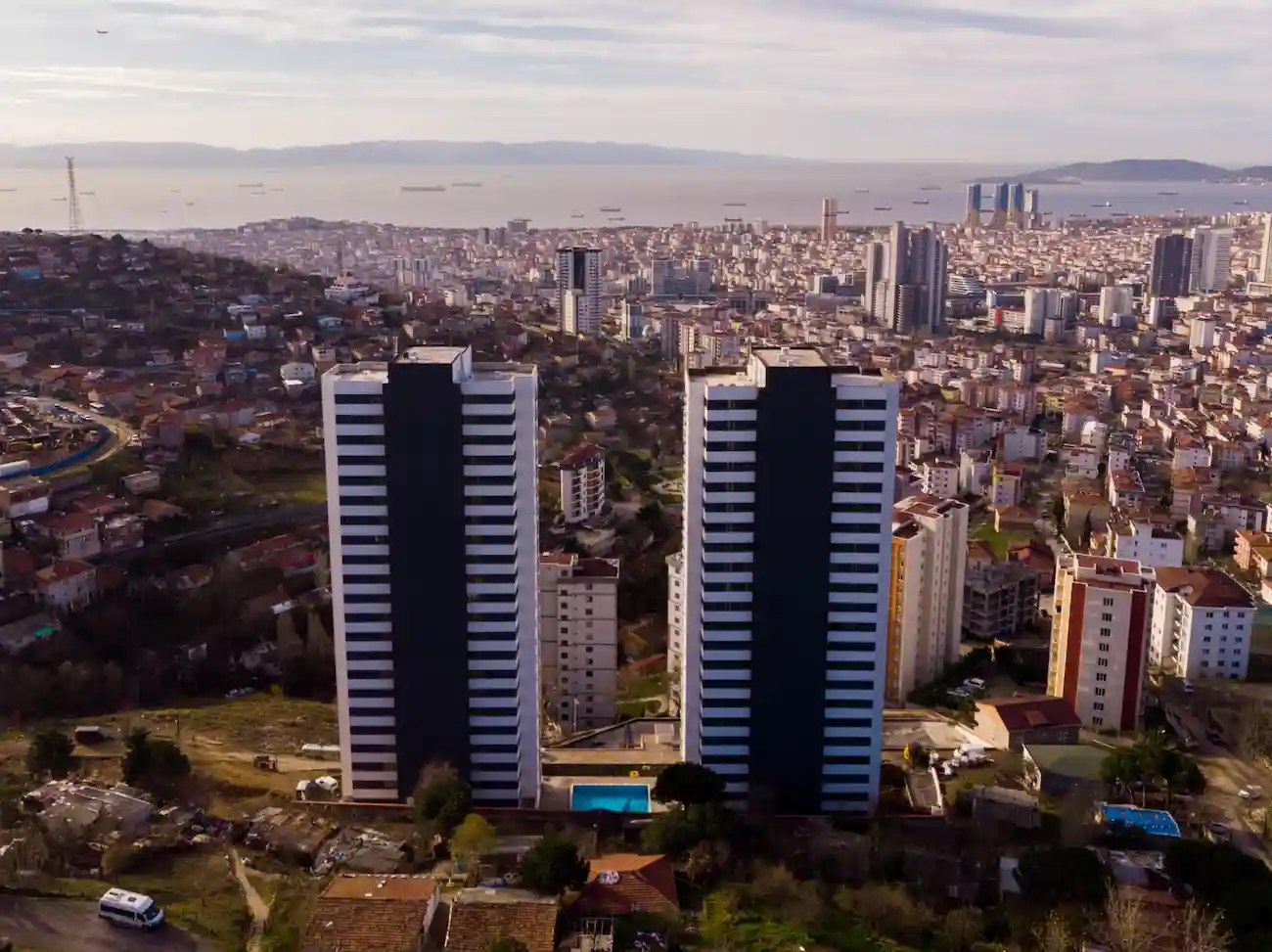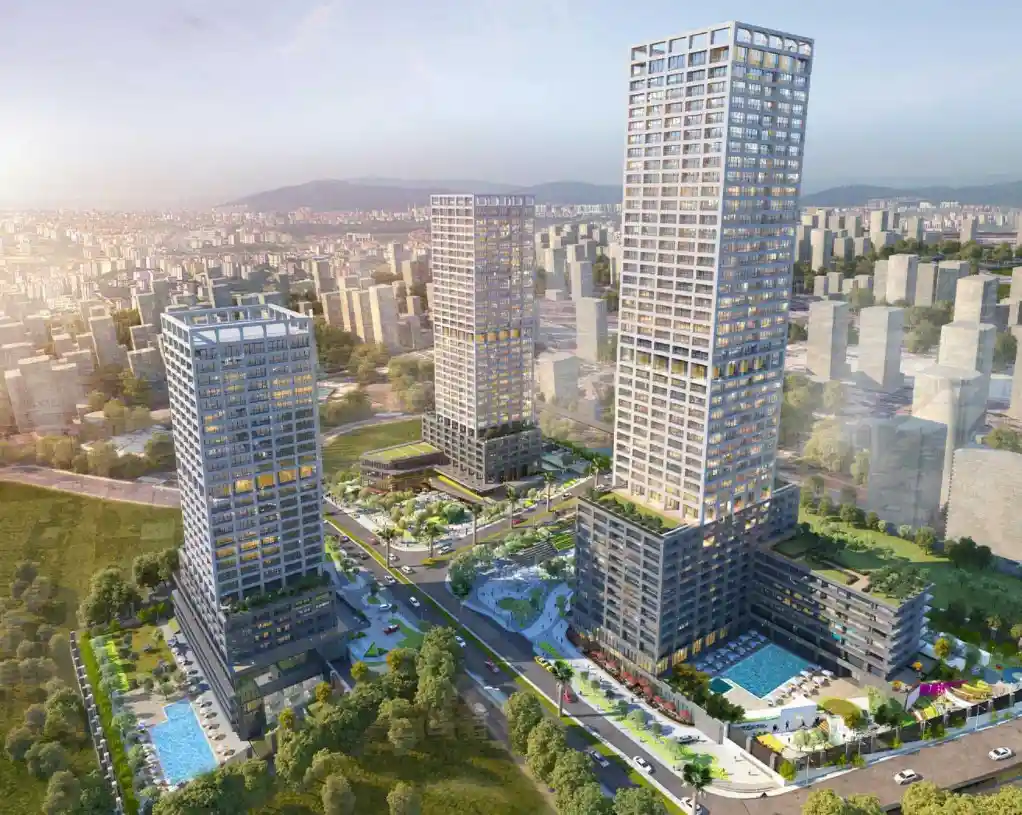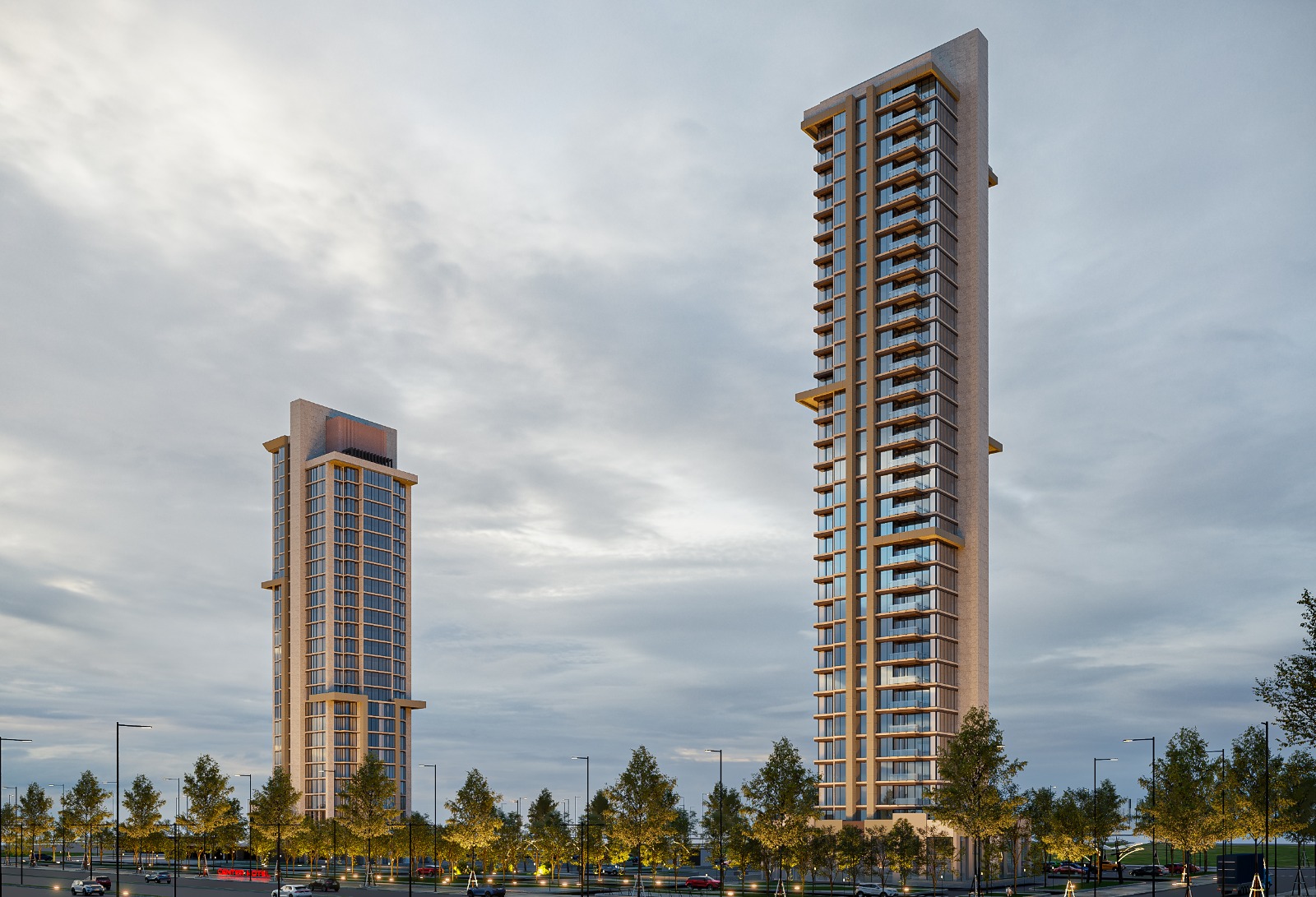Istanbul Finance Center: Turkey’s New Global Financial Hub
Discover how the Istanbul Finance Center is transforming Turkey into a global financial powerhouse. Learn about its history, impact, opportunities, and future vision.
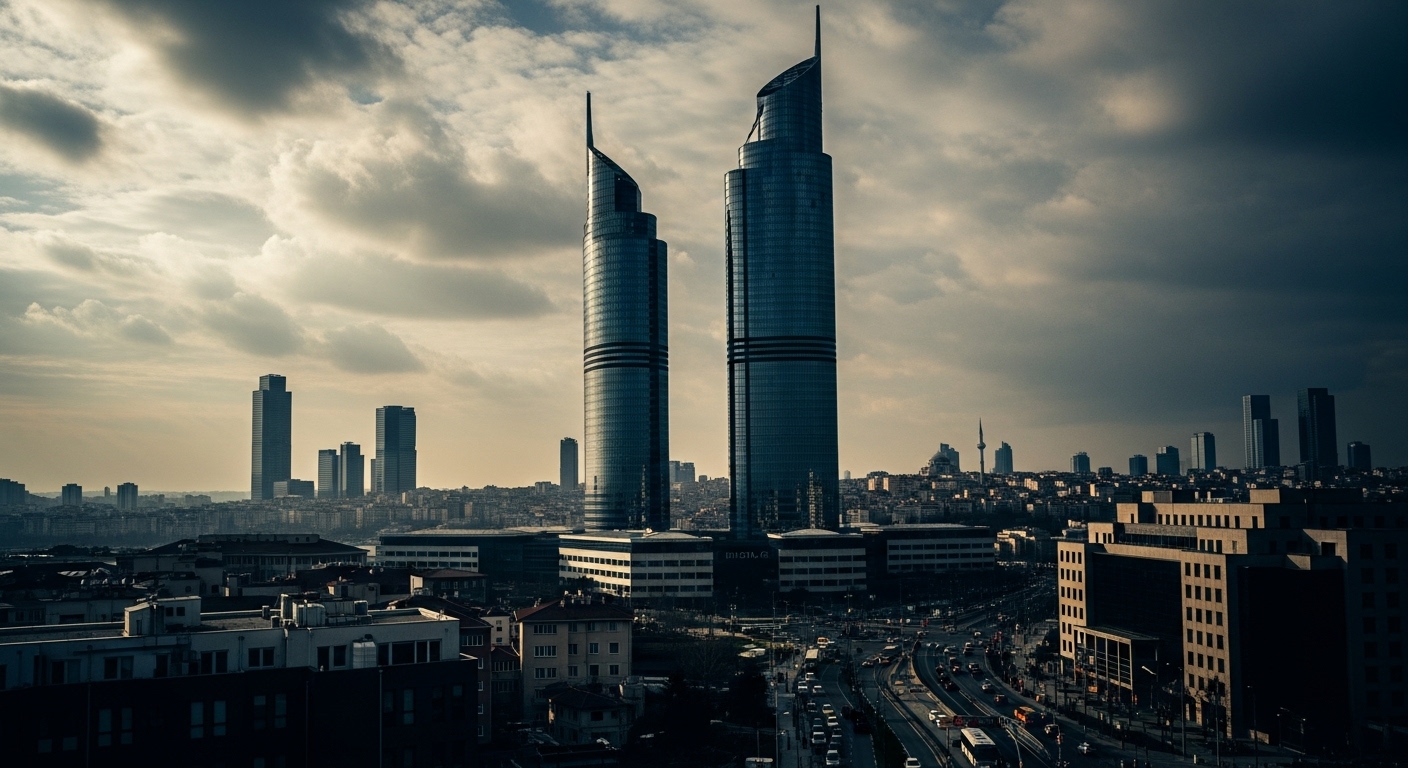
1. Introduction to Istanbul Finance Center
Have you ever wondered how cities like London or New York became magnets for global finance? Well, Turkey has its own answer — the Istanbul Finance Center (IFC). This ambitious mega-project is designed to position Istanbul among the world’s leading financial hubs. Located on the Anatolian side of the city, the IFC isn’t just another cluster of high-rise buildings — it’s a strategic economic powerhouse that aims to reshape the Turkish economy and attract global investors.
So, what makes this project so significant? For starters, Turkey sits at a unique crossroads — where East meets West, and cultures collide in a fascinating blend of tradition and modernity. The IFC aims to capitalize on this advantage by offering state-of-the-art infrastructure, advanced technology, and a business-friendly environment that appeals to multinational corporations, major banks, and financial institutions.
Beyond being a business district, the IFC is part of Turkey’s grand vision to shift the economic axis towards the East while maintaining strong ties with Europe. It’s a symbol of the country’s ambitions to emerge as a key player in the global financial system. And for investors, professionals, and companies, it represents a gateway to billions of dollars worth of opportunities.
From world-class office spaces to luxurious residences and retail outlets, the IFC is designed as a mixed-use urban masterpiece. Whether you’re a business executive, an investor, or a curious traveler, the Istanbul Finance Center is set to become a landmark that combines commerce, culture, and connectivity like never before.
2. Historical Background
The seeds of the Istanbul Finance Center were sown long before construction cranes dotted the skyline. Back in the early 2000s, the Turkish government recognized the need for an integrated financial hub that could consolidate Istanbul’s scattered banking and finance sectors into a single, modern district. The goal was simple yet ambitious: create an ecosystem that could rival Dubai, London, or Hong Kong.
Planning officially began during the tenure of Turkey’s visionary leaders who pushed for large-scale infrastructure and urban development projects. The IFC was declared a strategic project under the government’s 2023 Vision — a blueprint aimed at marking the centennial of the Turkish Republic with significant economic and social milestones.
Groundbreaking started in the 2010s, but the project faced its fair share of challenges. Political shifts, economic fluctuations, and global financial crises caused occasional delays. Yet, despite the hurdles, the IFC steadily progressed thanks to strong government backing, public-private partnerships, and an unwavering vision to position Istanbul as a financial epicenter.
Over the years, the IFC has attracted some of Turkey’s biggest banks, financial regulators, and international firms. It’s not just about glass towers and modern offices; it represents a shift in Turkey’s economic strategy — from relying on traditional industries to embracing finance, technology, and innovation.
Today, the Istanbul Finance Center stands as a testament to Turkey’s resilience and ambition. As construction phases wrap up and tenants move in, the project signals a new era for Istanbul — one where ancient bazaars coexist with cutting-edge stock exchanges, and where a tea vendor’s call echoes next to billion-dollar deals.
3. Strategic Location of Istanbul
Ask any real estate expert and they’ll tell you — location is everything. This couldn’t be truer for the Istanbul Finance Center. Nestled in the Ataşehir district on Istanbul’s Asian side, the IFC sits right at the heart of a city that literally bridges two continents: Europe and Asia.
For centuries, Istanbul has been a key trading post, thanks to its prime spot along the Silk Road and its control over the Bosphorus Strait — a vital waterway that connects the Black Sea to the Mediterranean. Today, this geographic advantage plays a big role in the city’s ambition to become a global finance hub.
Think about it: a business meeting in London in the morning, lunch with clients from Dubai in the afternoon, and a virtual conference with Asian investors before dinner — all from Istanbul. Its time zone overlaps conveniently with major markets in Europe and the Middle East, giving traders and financiers the ability to operate seamlessly across regions.
Transportation is another big plus. The IFC is connected to Istanbul’s sprawling metro network, major highways, and two international airports. This makes it easily accessible not just for local commuters but also for foreign investors and global executives who fly in for high-stakes negotiations.
Beyond logistics, Istanbul’s rich cultural fabric adds another layer of appeal. The city’s unique mix of ancient landmarks and modern skyscrapers creates an inspiring backdrop for doing business. It’s where East meets West — not just geographically, but also in its people, food, and way of life.
In essence, the strategic location of the Istanbul Finance Center is not just about maps and borders — it’s about connectivity, accessibility, and being at the crossroads of global commerce. For businesses looking to tap into Europe, Asia, and the Middle East simultaneously, there’s hardly a better address.
4. Architectural Marvel and Infrastructure
Skyscrapers may be a dime a dozen these days, but the Istanbul Finance Center isn’t just another cluster of glass and steel. It’s a bold statement in urban design, sustainability, and smart city planning.
The architecture of the IFC blends sleek modern aesthetics with functional design. Some of Turkey’s top architects and international firms collaborated to create a skyline that’s both iconic and practical. Towering office buildings house major banks and corporate headquarters, while lower-rise structures accommodate retail outlets, conference halls, and luxury apartments.
One of the standout features is the integration of green spaces. Rooftop gardens, landscaped plazas, and pedestrian-friendly boulevards soften the urban density and create a more livable, breathable environment. This isn’t just about good looks — it’s part of a bigger commitment to sustainability. Energy-efficient buildings, smart grids, and water conservation systems ensure that the IFC stays ahead of global green building standards.
Security and infrastructure are equally robust. Advanced surveillance systems, integrated transport links, and resilient utility networks make the IFC a fortress for data and people alike. High-speed internet, dedicated data centers, and secure financial transaction hubs create an ecosystem where sensitive financial operations can run smoothly.
Inside, the offices are designed with flexibility in mind — think open workspaces, cutting-edge meeting rooms, and smart building systems that adjust lighting and temperature based on occupancy. The aim? To boost productivity while ensuring comfort.
And let’s not forget lifestyle. Employees and visitors enjoy world-class amenities: gourmet restaurants, shopping malls, wellness centers, and cultural venues all within walking distance. It’s an urban village where you can sign a million-dollar deal and grab artisanal coffee on the same block.
In short, the architectural brilliance and advanced infrastructure of the Istanbul Finance Center reflect Turkey’s ambition to set new standards in how finance hubs should look and feel in the 21st century.
5. Core Components of the Istanbul Finance Center
What exactly makes up the Istanbul Finance Center? It’s not just office towers and fancy lobbies — it’s a carefully planned ecosystem designed to support every facet of the financial world while providing a vibrant urban experience.
Financial Institutions and Banks:
At its core, the IFC hosts the headquarters of Turkey’s leading state-owned banks, private financial institutions, and regulatory bodies like the Banking Regulation and Supervision Agency (BDDK) and the Capital Markets Board (SPK). This clustering helps streamline operations and fosters collaboration between regulators and market players, ensuring smooth governance and robust oversight.
Commercial and Residential Zones:
Beyond the banking halls and stock tickers, the IFC includes high-end residential apartments and serviced residences aimed at professionals and expatriates. These homes come with modern amenities, security, and easy access to workplaces — creating a true live-work-play environment.
Retail and Lifestyle Offerings:
A finance center can’t run on suits and spreadsheets alone. The IFC features a sprawling retail district with luxury boutiques, restaurants, cafes, and entertainment venues. Conference centers and hotels within the complex cater to international delegations and business travelers, making it a one-stop destination for work and leisure.
Education and Innovation:
Some parts of the IFC are dedicated to training centers, think tanks, and innovation hubs that nurture talent and encourage research in finance and technology. This emphasis on education ensures that the IFC stays ahead of trends like fintech, blockchain, and sustainable finance.
Put it all together, and the Istanbul Finance Center emerges as more than a business district — it’s a city within a city, crafted to meet the evolving needs of the global financial community while offering a vibrant lifestyle for everyone who lives and works there.
6. Economic Impact on Turkey
When you think of mega-projects that transform a nation’s economy, the Istanbul Finance Center (IFC) is undoubtedly at the top of Turkey’s list. This colossal financial district isn’t just a shiny new skyline — it’s a powerful economic engine aimed at driving Turkey’s growth well into the future.
First and foremost, the IFC is expected to significantly boost Turkey’s GDP. By centralizing financial activities and attracting global investors, Turkey hopes to increase its share in international capital flows. The idea is simple: make Istanbul the go-to hub for regional banking, capital markets, insurance, and fintech services. This, in turn, generates billions in direct and indirect revenue, benefiting everything from real estate to retail.
Job creation is another major perk. During the construction phase alone, thousands of jobs were generated for engineers, architects, construction workers, and suppliers. Now that the buildings are operational, the IFC supports tens of thousands of permanent jobs — from financial analysts and IT specialists to hospitality staff and maintenance crews. This large workforce helps reduce unemployment rates and enhances the city’s skilled labor pool.
But the ripple effect goes beyond finance. Local businesses — from cafes and dry cleaners to gyms and daycares — thrive thanks to the daily influx of professionals and visitors. Surrounding neighborhoods see rising demand for housing, which drives new real estate projects and infrastructure upgrades like roads, metro lines, and utilities.
For the Turkish government, the IFC is also a strategic move to stabilize the economy. By positioning Istanbul as a hub for regional capital, Turkey can attract foreign direct investment (FDI), increase foreign currency reserves, and balance its current account deficit. In an economy that often deals with currency fluctuations and external shocks, having a robust financial services sector acts as a buffer.
Overall, the Istanbul Finance Center is more than a collection of office buildings — it’s a cornerstone of Turkey’s long-term economic vision. It’s designed to bring prosperity not just to a city or sector but to millions of people across the country.
7. Role in Regional and Global Financial Markets
Let’s zoom out for a moment. How does the Istanbul Finance Center fit into the bigger picture of global finance? The short answer: strategically and ambitiously.
Turkey has long aspired to punch above its weight economically. By creating the IFC, it seeks to position Istanbul as a financial powerhouse that connects Europe, the Middle East, North Africa, and Central Asia. In other words, the IFC is a bridge for capital flows between West and East.
One of the primary goals is to compete with other well-established financial hubs like Dubai International Financial Centre, Qatar Financial Centre, and even major European cities such as Frankfurt or London. While it’s a tall order, Istanbul has unique advantages — a large domestic market, a young workforce, and proximity to fast-growing emerging economies.
International banks and asset managers looking to expand in the region find the IFC appealing due to its regulatory advantages and world-class facilities. With modern stock exchanges, bond markets, and commodity trading platforms integrated into one district, the IFC offers efficiency and transparency that regional investors crave.
Turkey also aims to tap into Islamic finance, a sector worth trillions globally. The IFC has dedicated zones for participation banking (Islamic banking), making it a natural choice for investors from Gulf countries and Southeast Asia who seek Sharia-compliant financial services.
Moreover, by encouraging fintech innovation, the IFC positions itself as a hub for digital financial services and startups. This future-forward approach attracts venture capitalists, tech entrepreneurs, and research institutions looking to pioneer new solutions in banking, payments, and blockchain.
For global investors, the IFC is both a new opportunity and a calculated risk. On the one hand, they gain access to multiple high-growth markets from a single base. On the other, they must navigate Turkey’s political and economic fluctuations.
Nonetheless, the IFC’s emergence is a clear signal: Istanbul is serious about reclaiming its historic role as a gateway between continents — not just for trade caravans but for capital, ideas, and innovation in the 21st century.
8. Government Support and Regulatory Framework
No financial hub can succeed without solid government backing and a robust regulatory environment — and the Istanbul Finance Center has both.
From day one, the Turkish government recognized that creating a global finance center requires more than just buildings. It needs policies that make doing business easy, efficient, and attractive to local and foreign investors alike. To this end, special legislation was crafted to grant the IFC various advantages.
Businesses operating within the IFC benefit from streamlined bureaucratic processes. Setting up a company, getting work permits, and dealing with government agencies are designed to be faster and more investor-friendly compared to other parts of the country. For foreign firms, this means fewer headaches and more focus on growth.
Tax incentives are another big draw. Companies in the IFC enjoy certain tax breaks and exemptions, which lowers operational costs and boosts profitability. This aligns with global best practices seen in places like Dubai and Singapore, where favorable tax policies have lured major multinationals.
Regulatory agencies like the Banking Regulation and Supervision Agency (BDDK) and the Capital Markets Board (SPK) have offices within the IFC. This proximity allows for efficient oversight and quick resolution of regulatory issues. It also helps build trust with international investors who expect strong governance and compliance standards.
To further ensure competitiveness, the government has invested heavily in digital infrastructure and cybersecurity. With secure data centers and stringent privacy laws, financial institutions can operate with confidence, knowing that sensitive information is protected.
Of course, there are challenges. Turkey’s legal system must continually adapt to meet international standards, especially in areas like dispute resolution and investor protection. The government has addressed this by promoting arbitration centers and special courts focused on financial disputes within the IFC.
Overall, the Turkish government’s commitment to creating a favorable legal and regulatory ecosystem is a cornerstone of the IFC’s success. It sends a clear message: Istanbul is open for business, and the rules are designed to help businesses thrive.
9. Challenges and Criticisms
Like any mega-project, the Istanbul Finance Center has its share of skeptics and hurdles to overcome. While the vision is grand, the reality on the ground presents a few bumps along the road.
One major challenge is economic volatility. Turkey has experienced currency fluctuations, inflation spikes, and political uncertainty in recent years. These factors can make investors hesitant to commit large sums to long-term projects in the country. For the IFC to succeed, economic stability and sound monetary policies are crucial.
Critics also point to potential oversupply. With millions of square meters of office space coming online, there’s a risk that demand might not keep up, leading to vacant towers and financial strain for developers. Striking the right balance between supply and demand will be key.
Environmental concerns are another point of debate. Large-scale construction projects like the IFC can strain local ecosystems, increase traffic congestion, and contribute to urban heat islands. While the IFC includes green design elements, environmentalists argue that more could be done to minimize its carbon footprint and protect surrounding natural habitats.
Social critics raise concerns about inequality. Mega-projects often lead to rising real estate prices in surrounding neighborhoods, which can push out lower-income residents. This gentrification effect is visible in parts of Ataşehir and Ümraniye, where the IFC is located.
On the international front, the IFC must work hard to build trust. Competing with established hubs means demonstrating not just world-class facilities but also transparency, rule of law, and political predictability. Any negative headlines about human rights, governance, or regulatory changes can spook investors and stall progress.
Despite these challenges, proponents argue that the IFC’s benefits far outweigh the risks. They emphasize that large-scale financial centers take years — even decades — to mature and that Istanbul is on the right path to becoming a competitive player in global finance.
In summary, while the Istanbul Finance Center holds tremendous promise, it must navigate economic, environmental, and social complexities to truly realize its potential.
10. Future Prospects and Vision
What does the road ahead look like for the Istanbul Finance Center? If all goes according to plan, the future is bright — and ambitious.
The IFC is not a static project; it’s envisioned as a dynamic district that evolves with the times. In the short term, the focus is on fully completing remaining construction phases, attracting more tenants, and ironing out operational details. Several multinational banks, financial technology companies, and consulting firms are expected to set up offices in the coming years.
Looking further ahead, the IFC’s vision aligns with Turkey’s broader economic goals: to become one of the world’s top ten economies by 2030. By consolidating its role as a financial bridge between continents, the IFC aims to manage trillions of dollars in regional capital flows. Plans are already in motion to expand its fintech ecosystem, encourage venture capital investments, and develop specialized zones for Islamic finance and sustainable finance.
Technological innovation will play a central role. The IFC aspires to become a smart district powered by artificial intelligence, blockchain, and big data analytics. This means faster transactions, tighter security, and better risk management for banks and investors alike.
Sustainability is another pillar. Future expansions will incorporate even more green building standards, renewable energy sources, and waste management solutions. The goal is to meet — and exceed — global benchmarks for eco-friendly urban development.
In addition to economic and technological growth, the IFC plans to strengthen its human capital. Partnerships with universities, research centers, and international organizations will ensure a steady pipeline of skilled professionals ready to lead Turkey’s financial future.
Of course, the IFC’s long-term success hinges on Turkey’s ability to maintain political and economic stability, foster investor confidence, and stay ahead of global financial trends. But with strong government backing and an adaptable framework, the Istanbul Finance Center has every chance to evolve into a symbol of modern Turkey’s ambition and resilience.
11. Comparison with Other Global Finance Centers
To truly understand the ambition behind the Istanbul Finance Center (IFC), it helps to see how it stacks up against some of the world’s most renowned financial hubs. Let’s put Istanbul side by side with big names like Dubai, London, New York, and Singapore.
Dubai International Financial Centre (DIFC):
Dubai is often cited as the IFC’s closest competitor in the region. Like Istanbul, Dubai capitalized on its strategic location, connecting the Middle East, Africa, and South Asia. The DIFC has become a magnet for global banks, insurance companies, and fintech startups thanks to its tax-friendly laws and independent legal system based on English common law. The IFC, by contrast, operates under Turkish law but offers streamlined regulations and incentives to draw similar businesses.
London:
London has centuries of financial history behind it. It’s home to iconic institutions like the London Stock Exchange and Lloyd’s of London. Its appeal comes from deep capital markets, a skilled workforce, and political stability. Istanbul can’t replicate London’s historical clout overnight, but it offers proximity to emerging markets that London does not directly access.
New York:
Wall Street is the heartbeat of global finance, with unmatched liquidity, a huge domestic economy, and a robust regulatory environment. While the IFC doesn’t aim to compete head-to-head with New York, it can serve regional needs and attract companies looking to diversify away from saturated Western markets.
Singapore:
Singapore’s financial center thrives on efficiency, top-notch infrastructure, and zero tolerance for corruption. It’s a gateway to the booming Asian markets. Istanbul’s unique advantage over Singapore is its cultural and economic ties with Europe, the Middle East, and North Africa — a region underserved by existing financial hubs.
So, where does Istanbul stand?
In essence, the IFC combines pieces of what makes these cities successful: Dubai’s regional access, London’s bridging of continents, Singapore’s modern infrastructure, and New York’s dynamism — all with a Turkish twist. Its success will depend on how well it maintains economic stability, evolves its legal framework, and markets its unique position at the crossroads of the old Silk Road.
12. Opportunities for Investors and Businesses
For investors and businesses eyeing the Istanbul Finance Center, the question isn’t whether there’s opportunity — it’s which opportunity to grab first.
Financial Services:
The most obvious bet is traditional banking and financial services. Turkey’s large population and growing middle class mean high demand for loans, investment products, and insurance. Banks can tap into regional markets that stretch from Eastern Europe to Central Asia.
Fintech and Digital Banking:
One of the most promising sectors is financial technology. With the Turkish population being young and tech-savvy, digital payment platforms, blockchain startups, and AI-driven financial tools have fertile ground to grow. The IFC aims to become a hub for innovation, offering incubators and incentives for fintech entrepreneurs.
Islamic Finance:
Given Turkey’s cultural ties with the Islamic world, Islamic banking — also known as participation banking — is a big focus area. Global investors looking to expand Sharia-compliant products can find partners and customers at the IFC.
Real Estate Development:
Property developers and real estate funds have huge opportunities in the IFC and surrounding districts. High-end office spaces, luxury apartments, hotels, and retail malls all promise solid returns, especially as more companies move in.
Professional Services:
Law firms, consulting agencies, and IT companies will find steady demand from the thousands of businesses operating in the IFC. Everything from accounting to cybersecurity to HR management is needed to keep this financial machine running smoothly.
How to Get Involved:
For foreign investors, the first step is understanding the regulatory environment and exploring partnerships with local firms. Turkey’s government actively encourages foreign direct investment and offers various incentives, especially for companies bringing in innovation and capital.
In summary, the IFC isn’t just an address — it’s an open invitation for global players to tap into a young market hungry for growth and financial sophistication.
13. Impact on Real Estate Market
The launch of the Istanbul Finance Center has been a game-changer for Istanbul’s real estate landscape — and its ripple effects reach far beyond the shiny towers inside the complex.
Skyrocketing Property Values:
First, let’s talk numbers. As soon as construction began and plans were announced, surrounding neighborhoods like Ataşehir and Ümraniye saw a sharp uptick in land and apartment prices. Investors, developers, and homebuyers all wanted a piece of the future financial capital. Luxury apartments, office spaces, and retail shops in proximity to the IFC became hot commodities, often commanding premium prices.
Commercial Real Estate Boom:
The commercial real estate sector has seen massive investments, not just within the IFC but along key transport corridors connecting it to the rest of the city. Office towers, coworking spaces, hotels, and serviced apartments are sprouting up to cater to the influx of multinational corporations and business travelers.
Residential Trends:
The IFC isn’t just a place to work — it’s a place to live. Developers are building high-rise apartments with modern amenities, smart home features, and proximity to shopping centers and schools. Young professionals and expatriates working at the IFC are the main target market. This demand has led to new residential projects and higher rental yields for property owners.
Urban Transformation:
The Turkish government and Istanbul Metropolitan Municipality have invested heavily in upgrading infrastructure around the IFC. New metro lines, wider roads, pedestrian zones, and parks are transforming what used to be quiet suburbs into bustling urban hubs. This urban renewal adds long-term value to properties and attracts further investment.
Investment Risks:
Of course, with high rewards come risks. Some experts warn about potential oversupply in office spaces if demand doesn’t grow as fast as anticipated. Others caution about inflated prices creating a real estate bubble. Investors should carefully analyze market trends, tenant demand, and macroeconomic indicators before making big bets.
Future Outlook:
Despite potential risks, most analysts agree that the IFC will continue to fuel Istanbul’s real estate boom for years to come. It’s a classic example of how a mega-project can redefine a city’s skyline and reshape investment opportunities for locals and foreigners alike.
14. Cultural and Lifestyle Aspects
One of the most fascinating parts of the Istanbul Finance Center story is how it blends cutting-edge finance with Istanbul’s vibrant culture and timeless charm.
A Fusion of Tradition and Modernity:
While the IFC itself is a modern marvel of glass and steel, it sits in a city that has been a crossroads of civilizations for thousands of years. Employees and visitors can start their day in a high-tech office and, within 30 minutes, find themselves exploring historic mosques, bustling bazaars, or sipping tea by the Bosphorus.
A Hub for Urban Living:
The IFC isn’t designed to be just another corporate district that empties out after 5 PM. It’s an urban center that combines work, living, shopping, dining, and entertainment. Upscale restaurants, international cafes, fitness centers, and cultural venues create a lively atmosphere round the clock.
Appeal for Expatriates:
For foreign professionals, the IFC offers a comfortable base in one of the world’s most culturally rich cities. International schools, healthcare facilities, and language services make settling in easier for expat families.
Connectivity to the City’s Heart:
Though located on the Asian side, the IFC is well-connected to Istanbul’s European side via bridges, tunnels, and ferries. This connectivity allows workers and residents to enjoy the best of both sides: the vibrant nightlife of Beyoğlu, the history of Sultanahmet, and the trendy cafes of Kadıköy.
Community and Social Life:
The design of the IFC emphasizes public spaces and community interaction. Open plazas, art installations, weekend markets, and cultural festivals aim to create a sense of belonging and make the district feel like an extension of Istanbul’s wider urban fabric.
In short, the Istanbul Finance Center is more than just a workplace — it’s a lifestyle destination where global finance meets local flavor, offering professionals a uniquely rich experience that few financial districts in the world can match.
15. Conclusion
The Istanbul Finance Center represents a bold and visionary leap for Turkey. It’s more than steel towers and glass facades; it’s a statement about Turkey’s ambition to reclaim its historic role as a bridge between worlds — not just in trade and culture, but in finance and innovation too.
From boosting the economy and creating jobs to transforming Istanbul’s real estate market and offering a vibrant urban lifestyle, the IFC promises to leave a lasting legacy. It faces challenges, no doubt — economic volatility, competition from established hubs, and the need for continuous improvement in governance and infrastructure. But with strong government support, strategic location, and an adaptable vision, the IFC is poised to evolve into a financial powerhouse that serves not just Turkey, but an entire region hungry for growth and investment.
For investors, businesses, and professionals alike, the Istanbul Finance Center isn’t just a place — it’s an opportunity waiting to be seized.
Have Question Or Suggestion ?
Please Share Your Thought, To Make It Real
